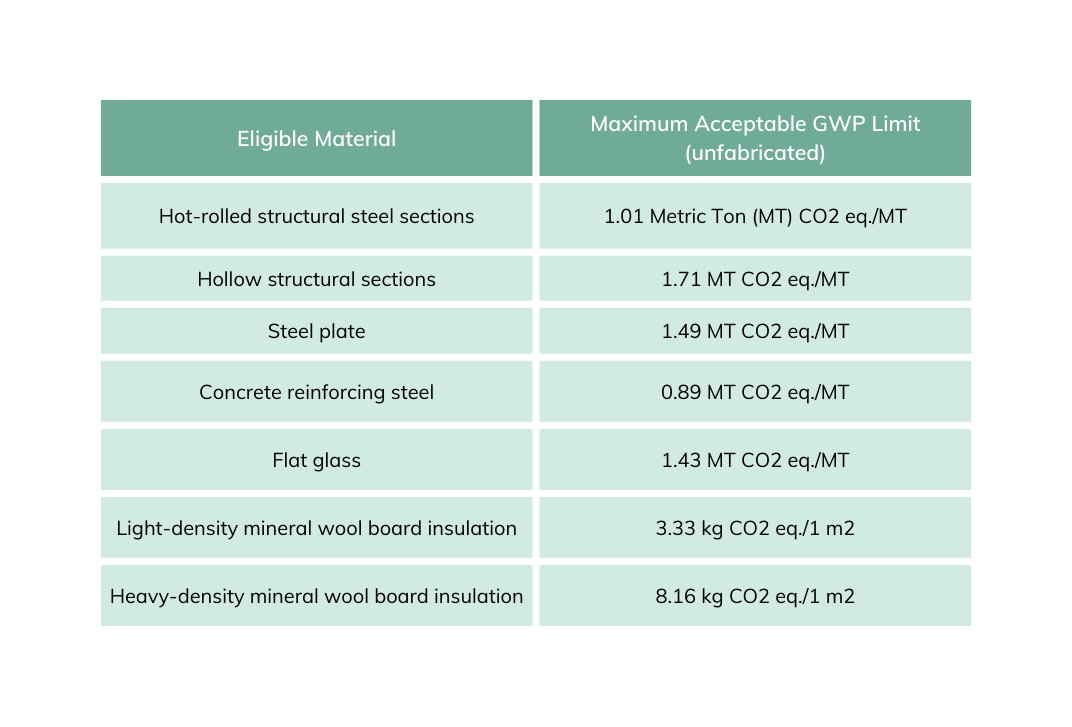Issues pertaining to environmental sustainability have become more prominent in the national discussion, especially as it pertains to climate change. In response to growing public concern about climate change and other environmental issues, California legislators and regulators have been looking at ways to help reduce the environmental impact of new development and construction, especially when it comes to public works projects.
The Buy Clean California Act (BCCA), which was first signed into law in October, 2017 and is published in Public Contract Code sections 3500-3505, was the first of its kind in targeting the regulation of supply chain emissions. Under its provisions, state agencies, including the Department of Transportation, Department of Water Resources, Department of Parks and Recreation, Department of Corrections and Rehabilitation, Military Department, Department of General Services, Regents of the University of California, Trustees of the California State University, must assess the carbon cost of materials used in certain construction projects. The materials include steel, glass and some types of insulation. Suppliers of the covered materials must submit documentation called an Environmental Product Declaration (EPD) that details their products' compliance with the standards of BCCA.
The California Department of General Services along with the California Air Resources Board (CARB) promulgated maximum acceptable Global Warming Potential (GWP) limits for construction materials on January 1, 2022. The materials included are:
- structural steel (hot-rolled sections, hollow structural sections & plate);
- concrete reinforcing steel;
- flat glass; and
- mineral board insulation.
In the latest development on this legislation, beginning on July 1, 2022 all authorities involved in the awarding process will require an accounting of current, project-specific EPD for all bids involving public works projects that use materials regulated by California law. The EPDs will be utilized to ascertain whether the eligible materials have a GWP that exceeds the limits set by DGS. Although these requirements are currently only California specific, many surmise that some states may adopt similar measures in the near future.
Maximum Acceptable GWP Limits for Eligible Materials

In order for products to comply with the new requirements manufacturers must conduct a product life cycle assessment and assign a "program operator" to verify and publish the EPD.
Which awarding authorities must comply with the BCCA?
The awarding authorities are the Department of Transportation, Department of Water Resources, Department of Parks and Recreation, Department of Corrections and Rehabilitation, Military Department, Department of General Services, Regents of the University of California, Trustees of the California State University and state agencies granted authority to work on public works projects under Management Memo 18-01.
In many instances, the interests of the environment and completing cost-efficient construction projects may seem to be conflicting. However, there is little doubt that environmental sustainability will continue to have an impact on the planning and development of public works projects and that the lessons learned from these projects will spill over into the private sector. Moving forward, private contractors who are seeking to win bids on public works projects should be aware of these new requirements and ensure that they are properly sourcing their materials to meet these new requirements.
The attorneys at Wood, Smith, Henning & Berman are apprised of the specifics of this law and available to answer any questions or concerns. Please do not hesitate to reach out to a member of our team for assistance.
